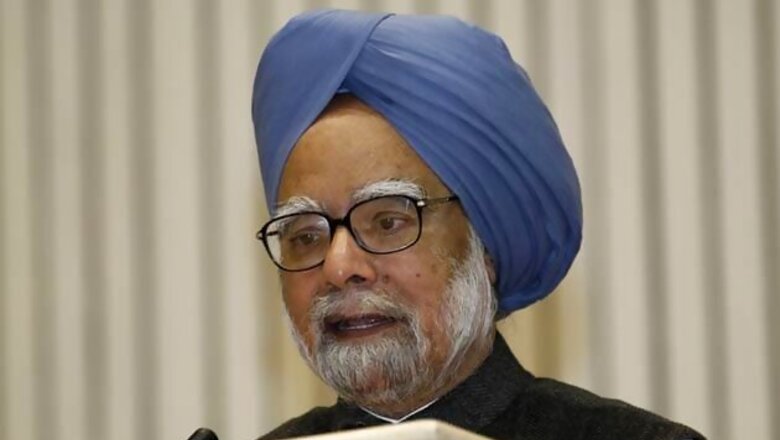
views
Tokyo: Committing himself to 'hard and difficult' decisions for long-term interest of the economy, Prime Minister Manmohan Singh on Tuesday expressed confidence that the economy will return to the growth path of 8 per cent.
Inviting Japanese investments in the infrastructure sector, he told captains of industry here that a target of USD 1 trillion has been set for the sector in the 12th Five Year Plan (2012-17), and hoped that Japanese businessmen will pick up a large share of these opportunities.
"Our people have tasted benefits of rapid growth and they will not settle for less. I want to assure you that our government is committed to taking hard and difficult decisions in the long-term interest of our economy," he said at a meeting of the Nippon Keidanren, the premier chamber of commerce and industry.
The 5 per cent growth witnessed last year should be seen as a 'temporary slow down', he said, adding "the Indian economy grew at an average of 8 per cent per year over the past decade. "The economic fundamentals which made that possible are still intact. We are confident therefore that we can return to the growth path of 8 per cent."
The Prime Minister also assured business leaders that India would be taking more steps to attract foreign investments."We have taken tangible steps to enhance incentives for investments. We have liberalised foreign investments in areas like multi-brand retail, power exchanges and civil aviation and further rationalisation and simplification is being planned. We have introduced further reforms in the financial markets," he added.
Singh further said that although the long-awaited Goods and Services Tax (GST) regime facing hurdles from states will be in place in an "appropriate type" by 2014. On a mission to woo Japanese investors, Singh said the present bilateral trade of USD 18 billion does no justice to the enormous potential that exists between the two countries.
The Prime Minister faced some searching questions from the Japanese industry which sought improvement in tax regimes, further easing of priority sector lending rules to expand financial services, and allowing opening of foreign bank branches in metropolitan cities.
Elaborating on GST, Singh said, "India is a federation and there are difficulties to bring states to agree to surrender tax power but I am confident we will overcome the hurdle." The GST has been facing opposition from several non-Congress states which have accused the Centre of trying to encroach on powers of the states and that such a move would hit their finances.
"So, I cannot say we can deliver tomorrow, but if you ask me by 2014 once elections are out of the way, whichever government is, there will be a general agreement of appropriate type in place to help propel India's growth story," he added.
The Prime Minister said as a result of a number of steps to revive the Indian economy, Government expects the growth rate in the current fiscal (2013-14) to be much better than in the previous year, hopefully around six per cent or so.
Indian economy in 2012-13 recorded a growth rate of 5 per cent, the lowest in the decade. Singh also informed that the Reserve Bank of India (RBI) had indicated that it would start the process of issuing new bank licenses.




















Comments
0 comment